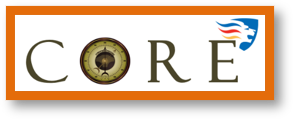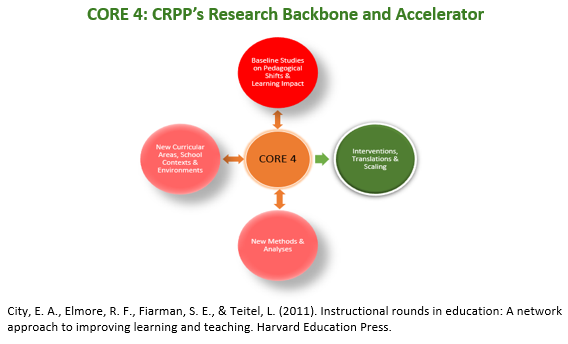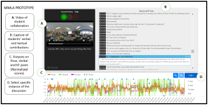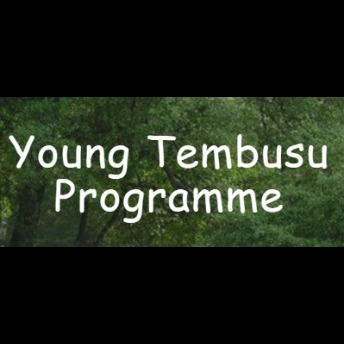Signature Projects

Dr Kwek Beng Kiat, Dennis
National Institute of Education [email protected]Dr Dennis Kwek is the Centre Director, Centre for Research in Pedagogy and Practice, and Associate Dean (Strategic Engagement), Office of Education Research, National Institute of Education, Nanyang Technological University, Singapore. He is a ...
Appointments:
Centre Director, Centre for Research in Pedagogy & Practice and Associate Dean, Strategic Engagement
Principal Research Scientist, National Institute of Education - Office for Research
Keywords: Education and Pedagogy | Educational Management and Leadership | Philosophy | Sociology | Teacher Education
Abstract:
NIE’s CORE Research Programme is a large-scale systematic baseline study of actual classroom pedagogies in Singapore’s primary and secondary schools focusing on: How do teachers teach? Why do they teach the way they do? How do students learn?
Following CORE 1 (2004-2007), Core 2 (2009-2014) and CORE 3 (2015-2023), CORE 4 (2023-present) continues to investigate the instructional core (City et al., 2011) of teaching and learning in Singapore classrooms, with a stronger focus on learner perspective, and increasing utility to generate substantive improvements. CORE’s impact is possible through a tight research-practice-policy partnership between MOE and NIE.


Dr Teo Chew Lee
National Institute of Education [email protected]Dr Teo Chew Lee is Deputy Centre Director of Centre for Research in Pedagogy and Practice at the Office of Education Research, National Institute of Education (NIE), Nanyang Technological University (NTU), Singapore. She received Master of Art ...
Appointments:
Deputy Centre Director, Centre for Research in Pedagogy & Practice
Senior Research Scientist, National Institute of Education - Office for Research
Keywords: Education | Science of Learning
Abstract:
Knowledge Building is a theory aimed at fostering collective cognitive responsibility within the classroom, with the goal of advancing knowledge as a community. It aims to restructure education by inducting students into a knowledge-creating culture, where they take collective responsibility for advancing understanding. This approach goes beyond helping students acquire information; it equips them with 21st Century Competencies essential for thriving in a fast-changing world. Our recent efforts focus on bridging research and practice to scale innovative Knowledge Building practices across diverse contexts, translating research into learning and teaching practices that foster deeper learning, critical thinking, and lifelong innovation skills. By leveraging technology, learning analytics, and insights from the science of learning, Knowledge Building initiatives seek to advance the future of education, creating environments where students collaboratively refine ideas and engage constructively with authoritative sources.
Knowledge Building Research
A series of Knowledge Building research initiatives have been developed to deepen understanding of student thinking, learning engagement, and educational neuroscience in a holistic and integrated manner.
Sustained Creative Discourse. The “Sustained Creative Discourse for Deep Learning” research project explores how students’ novel ideas and productive interactions can enhance collaborative learning in classrooms. It aims to develop a framework and instructional strategies for Sustained Creative Discourse, helping teachers and students deepen inquiry and expand their shared knowledge. The research findings inform classroom discourse practices and teacher professional development, fostering greater student agency and creativity.
Cognitive Flexibility and Knowledge Building. Complementing this is the project, “Investigating the Association Between Pedagogies and Cognitive Flexibility” which explores how various student-centric pedagogies such as Knowledge Building affects students’ abilities to shift between tasks, strategies, and ideas. This research contributes to broader understandings of cognitive flexibility and how it can be nurtured through education.
Multimodal Learning Analytics. In Knowledge Building, where the focus is on the co-construction and improvement of ideas, multimodal learning analytics helps researchers and educators understand how students interact, engage, and contribute in real-time environment. Through our research projects on multimodal learning analytics, we hope to understand students' socio-emotional engagement during various idea-centric processes in Knowledge Building discourse to support the design of smarter tools and evidence-based pedagogical strategies.
Knowledge Building Community
To transform education through the principles of Knowledge Building, the Knowledge Building Community (KBC) Singapore was founded as a collaborative network of educators, researchers, and students. Professional Learning Teams within schools and Network Learning series to connect educators across schools were formed to support teachers' professional development in the KBC. Through regular meetings and workshops, educators collaboratively analyse students’ ideas, explore Knowledge Building principles and research, discuss challenges, and share effective classroom practices. These ongoing interactions help deepen teachers’ own inquiry while promoting collective growth in Knowledge Building pedagogy. More than 1,000 local as well as international educators and researchers have been engaged in the Knowledge Building Community Network Learning series since 2018.
Knowledge Building Design Studio
To bridge the gap in the research-practice nexus and provide a creative infrastructure for practitioners to understand students’ potential, the student Knowledge Building Design Studio (sKBDS) was established in 2019. This innovative research infrastructure brings together students, educators, researchers, and experts to collaboratively address real-world sustainability challenges through the lens of Knowledge Building principles. These biannual studios are designed as immersive, multi-day events where participants engage in inquiry-driven activities, fostering a culture of collective cognitive responsibility and idea improvement. Through platforms like Knowledge Forum, participants document and refine their ideas, demonstrating the integration of technology in facilitating deep, collaborative learning. Being student-driven, sKBDS promotes cross-community Knowledge Building, connects researchers to students and expands research collaboration with schools and external institutions. This experiential learning model fosters knowledge co-creation beyond the classroom and has gained international recognition as a bridge between research and practice.
For more information about the KB community, please click here.

Dr Koh Ruilin, Elizabeth
National Institute of Education [email protected]Dr Elizabeth Koh is Senior Education Research Scientist (Senior Lecturer) at the Centre for Research in Pedagogy and Practice (CRPP), National Institute of Education (NIE), Nanyang Technological University, Singapore. She received her PhD in I ...
Appointments:
Senior Education Research Scientist, Centre for Research in Pedagogy & Practice
Senior Research Scientist, National Institute of Education - Office for Research
Keywords: Artificial and Augmented Intelligence | Education and Pedagogy | Information Sciences and Systems | Science of Learning
Abstract:
This is a suite of research and development studies to develop and use a Collaborative Video Annotation & Analytical Environment to Enhance Blended Teacher PD (CoVAAPD) ICT environment to enhance blended professional learning for Physical Education (PE) teachers.
As a form of technology-mediated learning, CoVAAPD has enabled PESTA coaches to deepen PE teachers’ socio-cognitive engagement and encourage rich peer interactions and knowledge construction. Research translation was enabled by stakeholder partnerships, fulfilling practice gaps, allowing for stakeholder customisation and securing buy-in. CoVAAPD is now scaled up to the system through SLS integration.

Dr Munirah Shaik Kadir
National Institute of Education [email protected]Dr Munirah Shaik Kadir is a Lecturer (Education Research Scientist) with the Lifelong Learning, Cognition, and Wellbeing (LLCW) Research Programme at the Centre for Research in Pedagogy and Practice (CRPP), Office of Education Research (OER), ...
Appointments:
Education Research Scientist, Centre for Research in Pedagogy & Practice
Research Scientist, National Institute of Education - Office for Research
Keywords: Education
Dr Teo Chew Lee
National Institute of Education [email protected]Dr Teo Chew Lee is Deputy Centre Director of Centre for Research in Pedagogy and Practice at the Office of Education Research, National Institute of Education (NIE), Nanyang Technological University (NTU), Singapore. She received Master of Art ...
Appointments:
Deputy Centre Director, Centre for Research in Pedagogy & Practice
Senior Research Scientist, National Institute of Education - Office for Research
Keywords: Education | Science of Learning
Abstract:
Why. The Young Tembusu Programme (YTP) brings together recognized research projects in CRPP with proven track record and re-designed these projects into a 4-day student holiday programme. The YTP aims to establish a comprehensive programme design and a pathway to translate for greater impact. Specifically, it seeks to create a scalable model of curriculum, pedagogy and assessment that prioritise diverse student needs and 21st century competencies.
What. YTP sets out to promotes holistic development beyond traditional academic success by repositioning learning as a purposeful and lifelong journey. YTP focuses on life skills and meaningful contributions to society. The significance of this project lies in its four design pillars of (i) Purpose and meaning of learning; (ii) leaners’ agency, (iii) creativity in learning, (iv) real world connection. These four design pillars guide the design, featuring interdisciplinary sub-programmes, all aimed at fostering cognitive, social, and emotional development. YTP is carefully curated and designed for students from diverse backgrounds, prioritising especially those from less privileged background.
Who. YTP is a collaborative effort led by ERSs in CRPP, with wonderful contributions from schools, Academic Departments, Programme office, Family and Community services, and non-profit organizations in Singapore. We are also part of the GESL programme.
Young Tembusu Programme (YTP) – 2025
YTP 2025, in both June and October, brought together 78 secondary school students from three local schools for two separate exciting weeks of discovery and collaborative learning at the National Institute of Education (NIE). The programme follows the plan that begins with a vibrant opening day filled with icebreaker games and team-building activities, where students got to know peers from other schools and interacted with researchers from NIE. Over the next two days, students delved into one of four sub-programmes tailored to their interests and passions. The holiday programme then closed with a joyful celebratory Carnival on the final day, where all the students came together to proudly showcase what they had learned, created, and discovered throughout the week. With confidence and pride, they invited their parents, siblings, and friends to come and experience their journey.
The successful implementation of YTP 2025 was made possible by:
- a committed team of CRPP, NSSE and CLIC researchers,
- collaborators from NTU, the Singapore Science Centre, and the Ministry of Education,
- the PGDE (Postgraduate Diploma in Education) student teachers under the GESL (Group Endeavour in Service Learning) programme
- NIE postgraduate student volunteers.
Last but not least, YTP 2025 would not have been possible without the invaluable support of school leaders, teachers, and parents from Yu Hua Secondary School, Bartley Secondary School, and Boon Lay Secondary School.
Our next YTP event will happen this June 2026! Watch this space for more updates
Award(s) Received
2025 - NIE Excellence in Innovation Commendation
If you are interested to be part of the programme or want to find out more, please email [email protected] Or [email protected].
